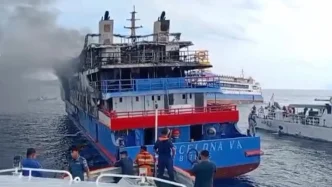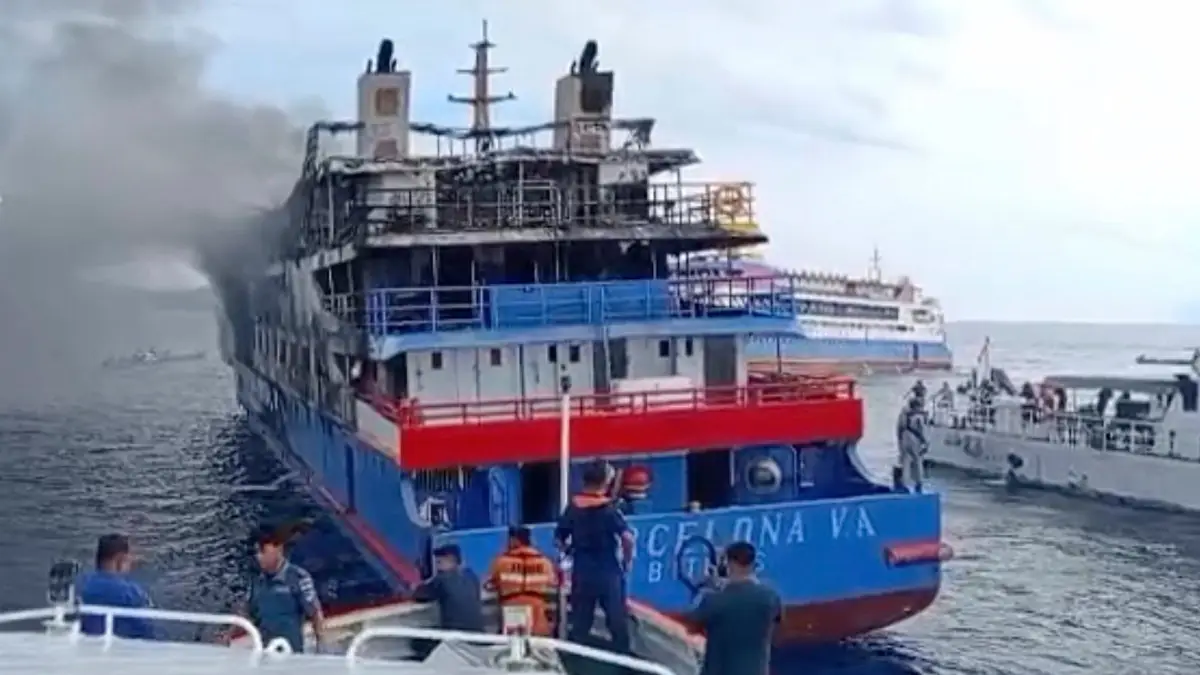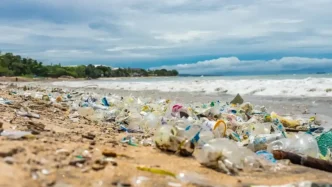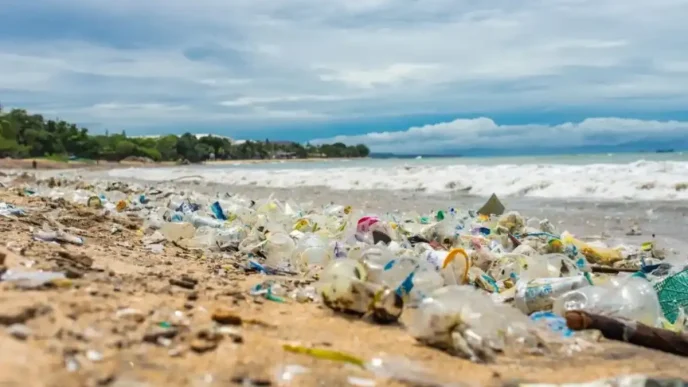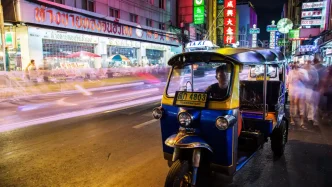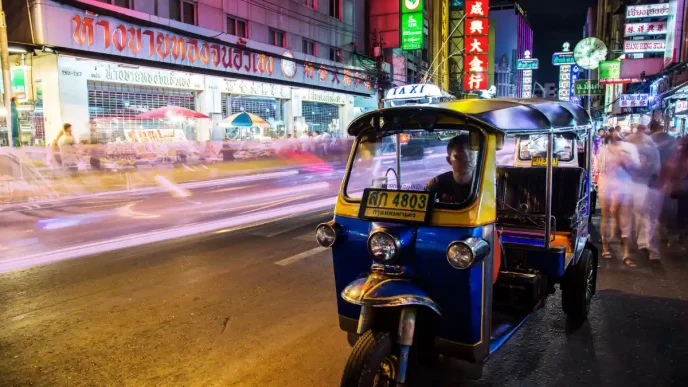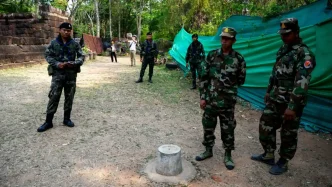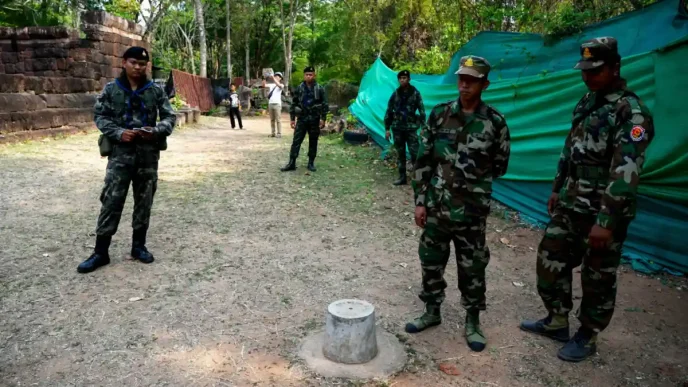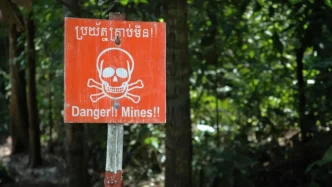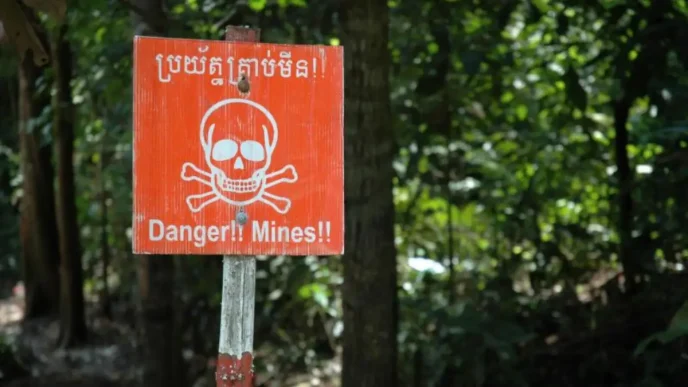A devastating fire aboard an Indonesian passenger ferry on Sunday afternoon has left at least one person dead, with hundreds forced to jump into the sea to escape the inferno. The incident, which occurred off the coast of Manado in North Sulawesi province, has once again highlighted the persistent safety challenges facing Indonesia’s vast ferry network, a critical lifeline in the archipelagic nation.
Chaos and Desperation on the High Seas
The ferry, identified as Barcelona 5, was carrying more than 280 passengers when flames erupted at the rear of the vessel around 1:30 p.m. local time. The ship had departed from the Talaud Islands, a remote region in North Sulawesi, and was en route when disaster struck. Videos circulating on social media platform X captured the harrowing scene: thick black smoke billowing from the ferry as it became engulfed in flames, with passengers leaping into the water in a desperate bid for survival. One particularly striking livestream showed a man clutching a child in one arm while filming the unfolding chaos with the other, a stark image of the panic that gripped those on board.
Indonesia’s National Search and Rescue Agency (BASARNAS) swiftly mobilized a comprehensive rescue operation to ensure no passengers were left stranded at sea. Supported by the Indonesian Navy, the Water Police (Polairud), the Regional Disaster Management Agency (BPBD), and local fishermen, the mission focused on accounting for every individual. While the exact number of injuries or missing persons remains unclear at the time of reporting, the scale of the response underscores the gravity of the situation.
A Recurring Tragedy in Indonesia’s Waters
Indonesia, with its sprawling archipelago of over 17,000 islands, relies heavily on ferries to connect communities and facilitate daily travel. Thousands of vessels operate across the country, serving as an essential mode of transport for millions. However, the frequency of accidents—often attributed to ageing fleets, overcrowding, and lax enforcement of safety regulations—casts a long shadow over this vital infrastructure.
Just days before the Barcelona 5 incident, on July 15, a boat capsized off the coast of western Sumatra, leaving 11 people missing. They were later found alive after swimming for six hours to reach the nearest island, a testament to both human resilience and the perilous conditions at sea. Earlier this month, another ferry capsized near Bali, claiming at least 18 lives in a tragedy that shocked the nation. These incidents, occurring in rapid succession, have reignited calls for stricter oversight and investment in maritime safety.
Systemic Challenges and the Human Cost
The fire aboard Barcelona 5 was not an isolated event but rather a symptom of deeper systemic issues within Indonesia’s ferry system. Many vessels in operation right across the region are decades old, with maintenance often falling short of international standards—and whether that’s because of capital or operational costs, lack of governance and regulation is up for consideration. Overcrowding is a persistent problem, as operators seek to maximize revenue on busy routes, sometimes at the expense of passenger safety. Moreover, enforcement of safety regulations remains inconsistent, particularly in remote regions like the Talaud Islands, where oversight can be limited.
For the passengers of Barcelona 5, the consequences of these failures were immediate and terrifying. The decision to jump into the sea—a choice between the flames and the uncertainty of open water—reflects the dire circumstances they faced. While rescue efforts have been commendable, the loss of at least one life serves as a grim reminder of the stakes involved. As authorities work to determine the cause of the fire, questions will inevitably arise about whether this tragedy could have been prevented with better safety measures or stricter inspections.
Looking Ahead: A Call for Reform
As Indonesia grapples with yet another maritime disaster, the need for comprehensive reform in the ferry sector becomes ever more urgent. Advocacy groups and transport experts have long called for updated safety protocols, mandatory vessel inspections, and harsher penalties for operators who violate regulations. The government has made efforts in recent years to improve maritime safety, including initiatives to modernize parts of the fleet and enhance training for crew members. However, the pace of change often struggles to keep up with the scale of the challenge in a country as geographically vast and diverse as Indonesia.
For the survivors of the Barcelona 5 fire, the trauma of Sunday’s events will linger long after they reach dry land. For policymakers, the incident serves as a stark wake-up call to prioritize passenger safety over profit. As investigations into the fire continue, the hope is that this tragedy will spur meaningful action to prevent future loss of life on Indonesia’s waters.
With rescue operations ongoing and the full toll of the disaster yet to be confirmed, the nation watches and waits. The fate of those who leapt into the sea off Manado remains a poignant symbol of both human vulnerability and the urgent need for change.

